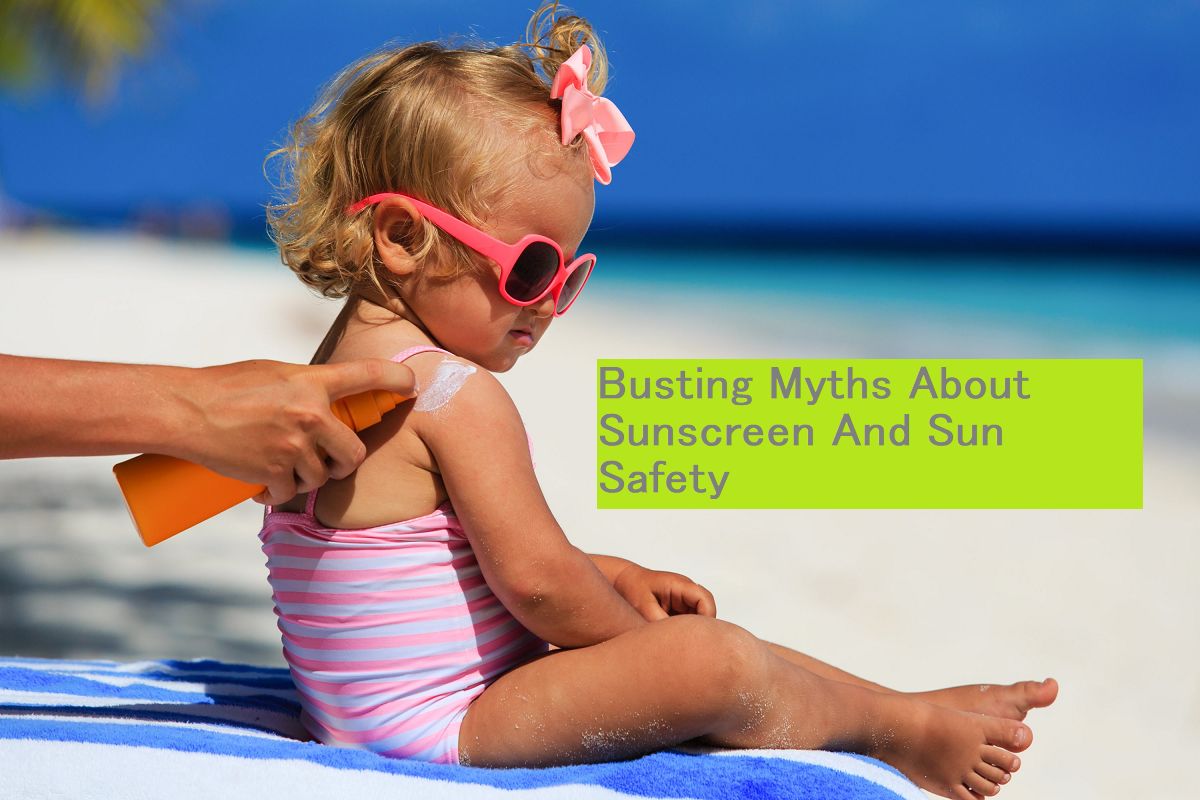Table of Contents
Everyone loves the feeling of warm sun rays on the skin and those long bright days filled with sunshine. Most of us wait for such weather to go out for a picnic, bike riding, water sports, and more. But before venturing outdoors, it is important to protect yourself and your family from the harmful effects of unprotected sun exposure.
Skin cancer is one of the most common types of cancer, with over 3.5 million people getting diagnosed with it in the USA alone. Squamous cell carcinoma, the most common skin cancer type, is caused by long-term exposure to the sun’s harmful ultraviolet rays without adequate sun protection.
Using sunscreen or sun protection cream is vital to protect yourself from sun damage and prevent premature ageing, dark spots, pigmentation, fine lines, and wrinkles. However, not all sunscreens offer adequate UV protection. There are abundant myths about choosing sunscreen and taking sun safety measures.
Here are some of those myths:
Sunscreen & Sun Safety Myths
- Higher SPF Means Higher Sun Protection
Most people assume that a higher SPF (sun protection factor) translates into higher sun protection. They believe that a sunscreen with an SPF of 100 is three times more powerful than one with SPF 30, which is entirely untrue.
The truth is no sunscreen can block 100% of the sun’s harmful rays. Additionally, an SPF has no impact on the duration of wearing sunscreen. No matter the SPF number, you need to reapply the sunscreen every 2 hours, whether indoors or outdoors.
- Any Clothing Piece Can Block Sun’s Rays
Many people assume that covering your face, neck, and arms with a cloth when stepping out in the sun is enough. You should know that no piece of clothing can offer adequate sun protection as much as a sunscreen does. Though dark and bold colours absorb more UV rays than lighter and pastel shades, you still need to wear sunscreen to get comprehensive sun protection. Also, cover your exposed skin properly while going out and wear a wide-brimmed hat, if possible. Wear UV-filtering sunglasses too for all-encompassing sun protection even for your eyes.
- You Can’t Have Sun-Damaged Skin If It’s Cloudy
Even if it’s not sunny outside, you need to wear sunscreen to protect yourself from its UV rays. On relatively cloudy days, up to 90% of the sun’s rays can still penetrate your skin and do damage. However, you may get tempted to skip your sunscreen since it’s not much heat outside, but that is where the damage starts.
You can still get sun-damaged skin even on a cloudy day. If you’re at the beach on a cloudy day, water and sand increase your chances of getting sun damage because they reflect the sun and end up exposing your skin to indirect additional UV rays. Remember – rain or shine, cloud or sun, always wear your sunscreen.
- My Makeup Has SPF, I Don’t Need More
If you’re using a foundation or a day cream with SPF 30, you’re getting some sun protection, but that’s not adequate to have you secured from the sun’s rays. You’d need a traditional sunscreen too to have all-around sun protection. It is not enough since you only apply a thin layer of sunscreen on your face, and that’s also a diluted form. Also, you don’t wear a foundation on your arms or ears or other exposed areas where you’d need to layer up with a traditional sunscreen with SPF 30 or higher. Always wear your sunscreen before applying makeup and after applying moisturiser.
- You Don’t Need a Sunscreen If You Have A Deeper Skin Tone
Indeed, dark skin takes longer to get a sunburn than lighter skin; excessive sun exposure can still lead to sun damage if not protected with sunscreen. AAD (American Academy of Dermatology) recommends everyone wear sunscreen because skin cancer can get to anyone regardless of race or complexion.
Tips to Find a Safe & Effective Sunscreen
- When buying sunscreen, look for broad-spectrum sunscreens that offer SPF from 15-50 as they’re effective at protecting you from both UVA and UVB rays.
- Look for water-resistant sunscreens that can offer sun protection against water for 40 to 80 minutes. It’s best to reapply the sunscreen after swimming, regardless of the last time you applied it.
- Avoid products with oxybenzone and look for products with mineral-based consistency.
Products to Buy
Make Lotus Herbals Safe Sun line of sunscreens a part of your sun-defence strategy in all seasons. Their sunscreen products are formulated with natural ingredients like Kakadu Plum, Horse Chestnut, Orange Extracts, Calendula Extracts, Chamomile, Vanilla, and White Peony. The sunscreens have gel, crème, and spray consistency for dry, oily, and combination skin types offering comprehensive sun protection for men, women, and kids. Buy Lotus SafeSun products and step out in the sun worry-free!
See Also – How to Enhance Your Beauty



